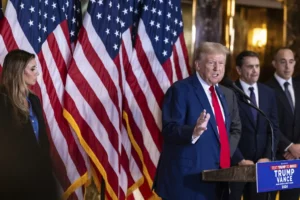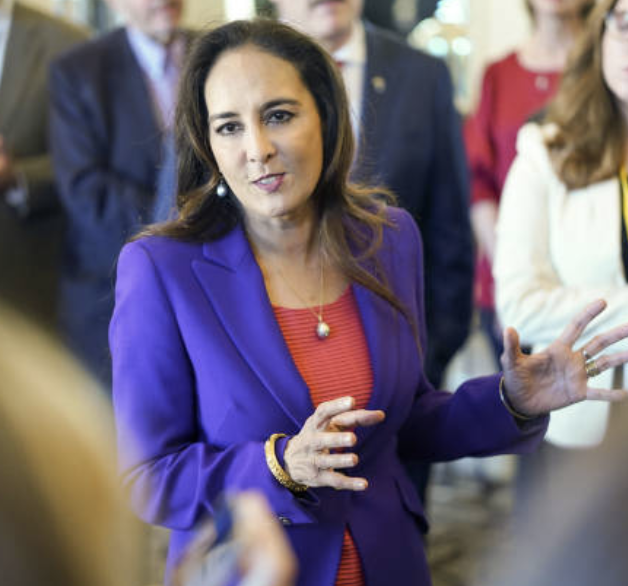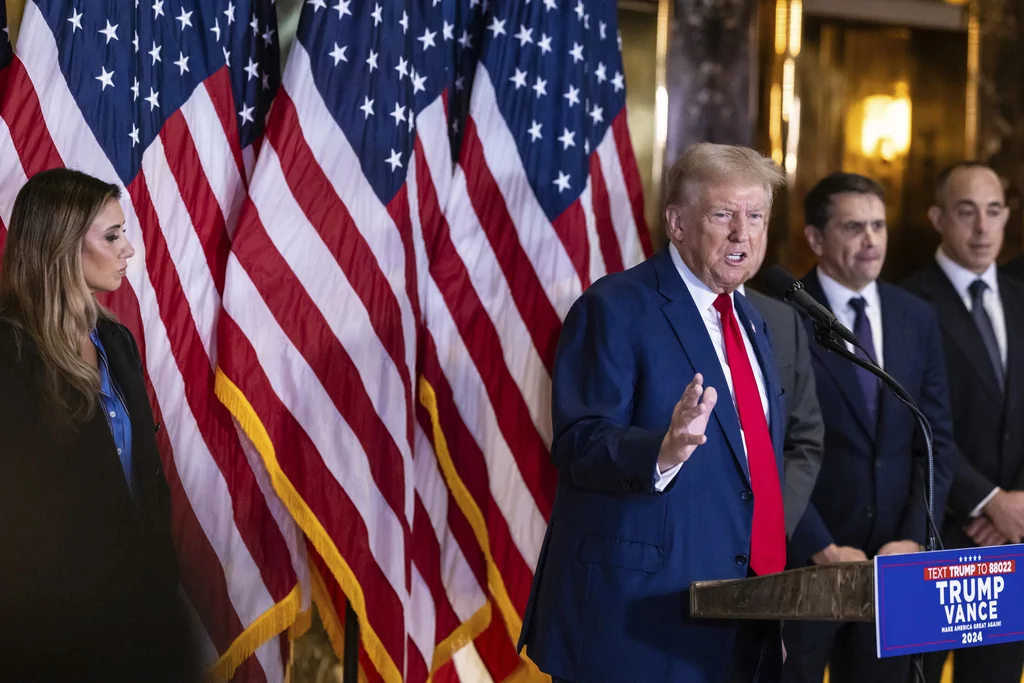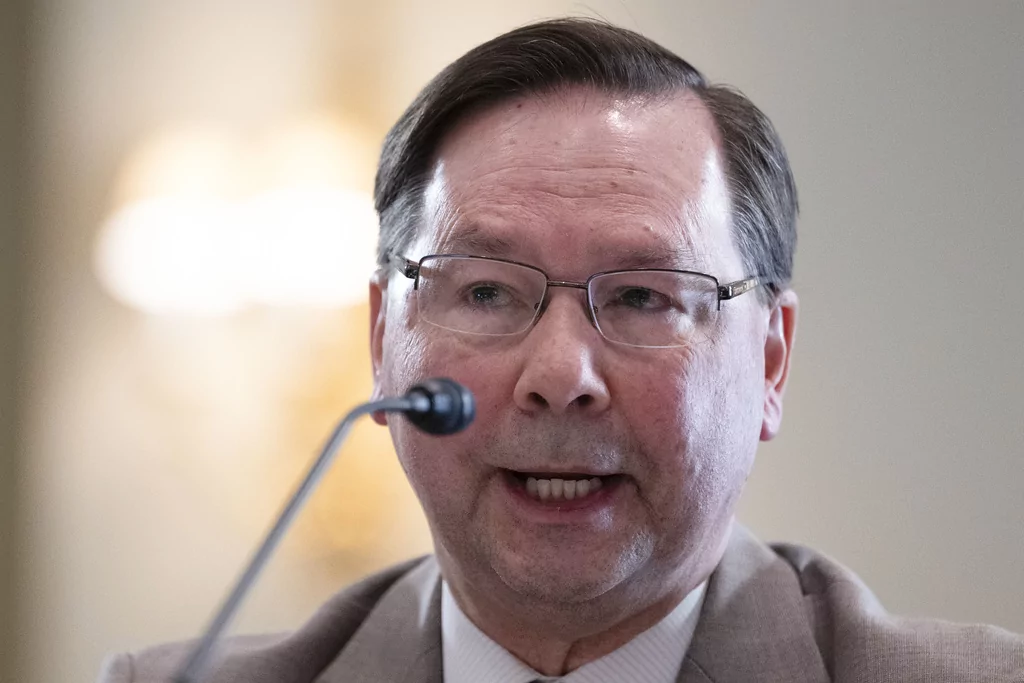
Legal fights over election integrity are well underway with less than two months to go to the election. This Washington Examiner series, Legal Games, will look at Democratic attempts to make sure they don’t have a repeat of 2016. Republican lawyers, meanwhile, are still spooked by what happened in the aftermath of 2020. Part 2 will look at the chilling effect of Democratic lawfare on Republican election lawyers.
As former President Donald Trump openly plans to bring 2024 election challenges in states where the results are close, questions linger over whether he’ll have the legal talent backing him the way they did four years ago.
Trump and his allies have vowed for months they are prepared to challenge the results of this year’s election should they see it necessary. But the fallout of more than 60 failed election challenges in 2020, coupled with indictments against him and his attorneys over attempts to insert so-called alternate electors to subvert his defeat, could ruin his chances to galvanize the legal talent needed to bring similar challenges this cycle.

Conservative lawyers have acknowledged it may be a “more difficult proposition” for Trump to find top legal talent heading into the final stretch of the race against Vice President Kamala Harris, arguing that bar associations across the country “have been captured by the Left.”
“All of those prosecutions, all those disbarments, are a complete abuse of the law, the legal system, and an abuse of the professional licensing system for lawyers,” Hans von Spakovsky, an attorney and former member of the Federal Election Commission, told the Washington Examiner.
The root of this uncertainty stems from the consequences many Trump attorneys faced for their role in aiding his 2020 election challenges. At least five attorneys — Rudy Giuliani, John Eastman, Jenna Ellis, Sidney Powell, and Kenneth Chesebro — have had their law licenses permanently or temporarily suspended due to their work related to Trump’s election litigation.
“The result of all of that is that, yeah, there’s a lot of lawyers, very good lawyers, who will be very reluctant to represent the president no matter how valid his legal claims are,” said von Spakovsky.
That could especially be the case in blue states, von Spakovsky said, resulting in local lawyers being “too scared” to represent Trump out of fear of retribution or being disbarred. In that case, Trump may need to ask lawyers from other states to travel to those Democratic-controlled states and seek special permission, known as pro hac vice, to represent the former president in court outside the states in which they’re licensed.
“That makes litigating much more difficult,” von Spakovsky said.
Despite that uncertainty from experts, other lawyers who work closely with the former president, such as National Committeewoman of the Republican National Committee for California Harmeet Dhillon, told the Washington Examiner that Trump would have no trouble retaining legal heavyweights in the industry.

Dhillon said there is a “really good network of lawyers all over the country” that are part of Trump’s legal effort for the 2024 election, expressing confidence in legal preparedness compared to 2020.
“2024, in theory, should be a different landscape” than the 2020 election, Dhillon said, noting last time there was far more litigation over election procedure rules related to the COVID-19 pandemic.
“We now have some certainty around what the rules are and how they’re going to be applied. And there has been extensive litigation by the RNC in the ensuing four years that is ongoing,” Dhillon added.
In the battleground state Arizona, which Trump lost by a narrow margin in 2020, Dhillon said there are “at least a dozen different lawsuits” there alone, “so there is extensive litigation to ascertain what the rules are going to be.”
Some of the lawyers Trump could have at his disposal for post-2024 election lawsuits include Dhillon Law Group counsel Gary Lawkowski and Mike Columbo, along with L. John Sauer and Will Scharf, two attorneys who successfully argued the Trump v. United States case at the Supreme Court, among other names.
But whoever helps Trump with potential post-2024 lawsuits will need to be adept and willing to change at a moment’s notice, in addition to having thick enough skin to meet the former president’s expectations.
Earlier, this month, Trump spoke at Trump Tower flanked by loyal courtroom advocates such as Alina Habba and Todd Blanche while admitting for the first time he’s been “disappointed in my legal talent.” But the comment appeared to be directed at his former attorney Joe Tacopina, who handled his defamation trial against author E. Jean Carroll, which resulted in a New York jury finding Trump liable for sexual assault last March.
“My lawyer who’s not up here,” Trump said of Tacopina, “not with us any longer.”

Whether Trump’s courtroom losses are due to the skill of his attorneys, a lack of that talent could become a particular issue for Trump if any of his legal challenges surrounding the election are elevated to the Supreme Court, as was the case for the 2000 election between George W. Bush and Al Gore.
For matters not related to election law or contesting the results, Trump has scored surprisingly well before the Supreme Court this year, including the 9-0 case known as Trump v. Anderson that protected him from ballot access challenges, a favorable ruling over presidential immunity in Trump v. United States, and a ruling that helped dozens of his supporters facing an obstruction charge from the Jan. 6 protest in Fischer v. United States.
Although the Supreme Court currently holds a conservative majority and three of the sitting justices were appointed by Trump himself, conservatives have said that will not affect his challenges. Rather, it may all come down to attorney quality.

“If a case gets up before the Supreme Court, it may, to some extent, be influenced by the quality of the lawyers on each side,” von Spakovsky said. “But ultimately, what’s going to make the difference is the legitimacy or validity of the legal claims.”
Of course, if and how Trump challenges the election depends greatly on which candidate, he or Harris, is perceived as the likely winner based on the way the vote comes down this fall and how narrow or broad the margin of victory is.
“The issue is that the lawyers who brought these cases did not have grounds to mount serious or significant legal challenges to the results of the election,” said Ray Brescia, a professor at Albany Law School and author of Lawyer Nation: The Past, Present, and Future of the American Legal Profession.
The law professor noted that almost all of the attorneys who have been indicted alongside Trump in the Georgia racketeering case, including Ellis and Chesebro, agreed to take plea deals with prosecutors. Those who pleaded guilty were required to write one-sentence letters admitting they “apologize” for actions related to the counts they were facing.
“If there are no facts to support such an effort, no lawyer who does not want to get sanctioned or even disbarred should agree to take on the case,” Brescia said.
Despite experts who say Trump could lack support this time around, Dhillon contends litigation led by her and Trump campaign counsel David Warrington in more than 100 cases across the country prior to Election Day will make all the difference this time around and perhaps alleviate any need for post-election mayhem in the courts.
CLICK HERE TO READ MORE FROM THE WASHINGTON EXAMINER
“I think 2020 … saw some shocking examples of ignoring state law and making it up,” Dhillon said of the way courts addressed COVID-19-related changes to election law.
“If we don’t have that this time around, we have a very good chance of winning this election,” she added.






